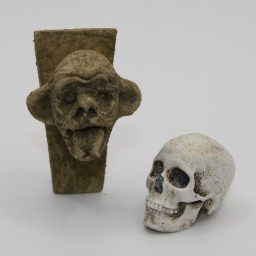

Hand-Work and Health-Work
Neuroscientists have revealed the deep connection between the sensory motor cortex of the brain and the hand. As a result, complex hand activities have a strong effect on how we both think and feel. In fact, the more effort put into a task, the higher the experiential reward. Working with your hands has been shown to have numerous health benefits, as it can boost physical, psychological, emotional, social and economic well-being.
For many miniaturists, working hands-on with materials stimulates their memories, emotions and senses, bringing pleasure and joy. At the same time, hand-work can be difficult and frustrating and puts demands on the body to move in certain ways, intensely engage and problem-solve. Nevertheless, perseverance and learning to refine hand-work skills to produce tangible outputs are hugely satisfying. Improving fine motor skills, creative thinking and perceptual reasoning is a counterpoint to idleness, stress and cognitive dysfunction.
Hand-work is also a vital source of value. No matter what techniques and tools they use, all makers regard the hand craftsmanship required to make miniatures to be the ultimate marker of their worth. For many, miniatures have also allowed them to enter or re-enter the labour market after redundancy, illness, or retirement. Meeting the high demand for hand-crafted items is thus also proving to be an antidote to economic inactivity and marginalisation.
We need your consent to load the translations
We use a third-party service to translate the website content that may collect data about your activity. Please review the details in the privacy policy and accept the service to view the translations.

